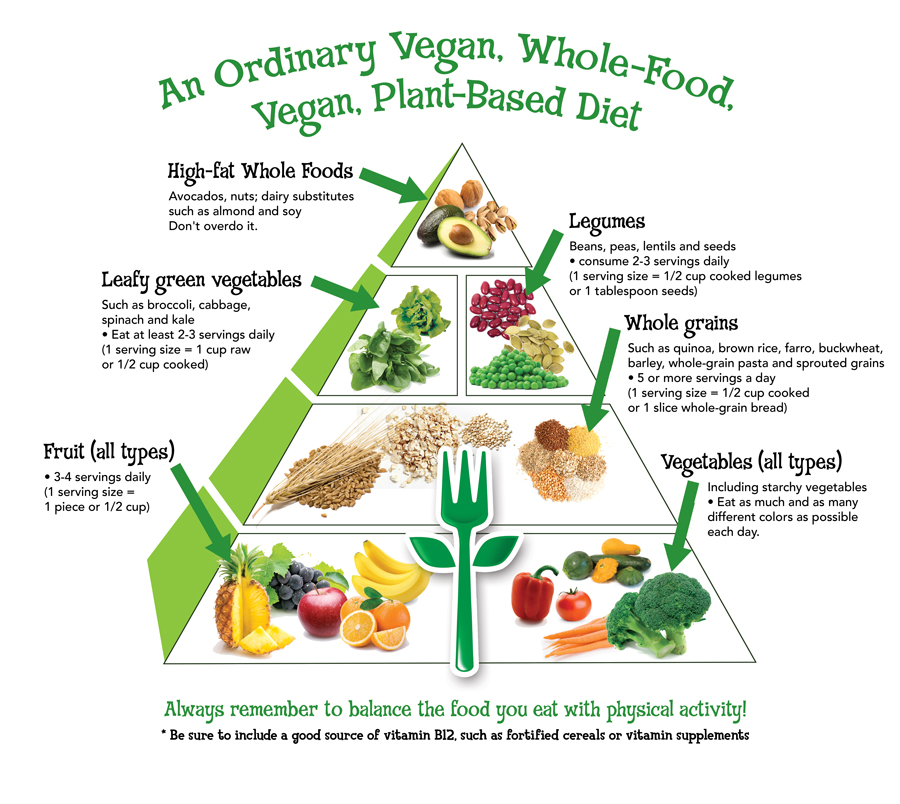Dietitian-Approved Sugar Free Sauces for Clean Eating Success
All Concerning Healthy Food: Benefits of Taking On Plant Based Options
The discussion surrounding plant-based diet plans has obtained significant attention in the last few years. Several individuals are discovering the possible wellness benefits, dietary advantages, and environmental effects related to these dietary selections. As people come to be much more knowledgeable about their food's impact on health and sustainability, concerns develop regarding the functionalities of adopting such a way of living. What particular changes can one anticipate, and just how might these choices reshape not only personal health and wellness however also the world's future?
Understanding Plant-Based Diet Regimens
Several individuals link plant-based diets mainly with vegetarianism or veganism, these diets can encompass a vast variety of consuming patterns that focus on whole, minimally refined plant foods. Such diets frequently consist of fruits, veggies, whole grains, seeds, beans, and nuts, while eliminating or restricting animal products. This flexibility permits people to tailor their nutritional options according to dietary needs and personal choices. Some might adopt a primarily plant-based diet while still sometimes consuming meat or dairy, often referred to as a flexitarian strategy. The emphasis remains on incorporating more plant foods, which can cause a varied selection of dishes and tastes. Recognizing these various interpretations of plant-based eating is important for appreciating its ease of access and allure in contemporary food culture.
Health And Wellness Conveniences of Plant-Based Foods
The health and wellness benefits of plant-based foods are substantial, using a nutrient thickness advantage that supports general wellness. Research study suggests that these foods can improve heart wellness and play a necessary role in reliable weight monitoring. By integrating much more plant-based options, people may boost their dietary choices and advertise lasting health.
Nutrient Thickness Benefit
Nutrient density plays a necessary function in the health advantages of plant-based foods, making them an engaging choice for those looking for a well balanced diet regimen. Plant-based foods, such as fruits, veggies, vegetables, nuts, and whole grains, are often abundant in vital vitamins, minerals, and antioxidants while being lower in calories. This high nutrient thickness permits people to eat less calories while still meeting their nutritional demands. In addition, these foods are loaded with nutritional fiber, promoting digestive wellness and assisting in weight monitoring. By integrating nutrient-dense plant-based alternatives, customers can enhance their general health and wellness, sustain their body immune systems, and lower the danger of chronic illness. Eventually, the nutrient density of plant-based foods emphasizes their value in a health-conscious way of life.
Heart Health And Wellness Enhancement

Weight Management Support
Along with promoting heart health, a plant-based diet regimen can significantly aid in weight monitoring. This dietary method emphasizes entire foods such as fruits, vegetables, vegetables, nuts, and entire grains, which are typically reduced in calories and higher in fiber contrasted to animal-based products. The high fiber material aids raise satiety, decreasing overall calorie consumption. In addition, plant-based diets are frequently abundant in crucial nutrients while reduced in unhealthy fats, making it simpler to preserve a healthy weight. Gluten Free BBQ Sauce. Research shows that people that embrace a plant-based lifestyle often tend to have reduced body mass indexes (BMIs) and experience more effective weight management contrasted to those that consume meat-heavy diet plans. Accepting plant-based choices is a critical option for reliable weight monitoring.
Nutritional Value of Plant-Based Active Ingredients
Plant-based components are abundant in important nutrients, providing a varied selection of vitamins, minerals, and antioxidants that add to general wellness. A comparison of protein resources exposes that while pet items are often deemed remarkable, many plant-based options provide appropriate protein and various other useful substances. Comprehending the nutritional value of these ingredients can assist individuals make educated nutritional options.
Necessary Nutrients in Plants
Nutrient-rich components discovered in plants use a varied variety of important minerals and vitamins that contribute significantly to total health. These active ingredients are abundant in vitamins A, C, and K, which support immune function, vision, and blood clotting, respectively. In enhancement, plants give essential minerals such as magnesium, potassium, and calcium, important for heart wellness, muscular tissue function, and bone toughness. The existence of fiber in plant-based foods aids digestion and advertises a healthy and balanced digestive tract microbiome. Anti-oxidants, found perfectly in veggies and fruits, aid combat oxidative stress and lower swelling. In addition, several plant foods are reduced in calories yet high in nutrients, making them find here an exceptional option for those seeking to keep a healthy and balanced weight while ensuring optimal nutrient consumption.
Comparing Healthy Protein Resources
Protein sources differ significantly in their nutritional profiles, with plant-based components offering distinct advantages. Unlike pet healthy proteins, which often contain saturated fats and cholesterol, plant healthy proteins tend to be lower in these unhealthy parts. Legumes, nuts, seeds, and whole grains are abundant in necessary amino acids, fiber, vitamins, and minerals. For circumstances, lentils offer high protein content alongside considerable iron and folate, while quinoa is a complete healthy protein, providing all nine necessary amino acids. Additionally, plant-based healthy proteins are frequently accompanied by anti-oxidants and phytochemicals that support overall health. The shift to plant-based protein sources not only enhances dietary consumption yet also straightens with sustainable nutritional methods, minimizing ecological influence and advertising lasting wellness benefits.
Environmental Effect of Plant-Based Consuming
As awareness of environment modification grows, many people are discovering sustainable nutritional selections that can greatly minimize their environmental footprint. Plant-based eating has become a significant factor to reducing greenhouse gas discharges, which are largely related to animals production. The growing of fruits, vegetables, grains, and legumes commonly calls for fewer sources, such as water and land, contrasted to animal farming. Additionally, plant-based diets can bring about reduced logging, as less land is required for grazing livestock or expanding animal feed. By changing towards plant-based alternatives, consumers can support biodiversity and promote healthier environments. In general, accepting plant-based eating not just benefits personal wellness however additionally stands for a crucial step toward ecological sustainability and preservation efforts.
Conquering Common Misconceptions
While lots of individuals acknowledge the benefits of a plant-based diet, a number of false impressions frequently deter them from totally embracing this way of living. A typical belief is that plant-based diet plans lack enough protein; nevertheless, numerous plant resources, such as vegetables, nuts, and tofu, give enough healthy protein. Furthermore, some assume that this diet plan is costly, when in truth, staples like beans, rice, and seasonal veggies can be rather affordable. An additional false impression is that plant-based eating is overly restrictive, whereas it really provides a diverse array of foods and tastes. Lastly, several worry that a plant-based diet plan might bring about deficiencies, yet with proper planning, individuals can acquire all essential nutrients, consisting of minerals and vitamins, while delighting in a wide array of scrumptious meals.
Tips for Transitioning to a Plant-Based Way of life
Making the change to a plant-based way of living can be an enriching experience, though it usually requires some assistance to browse the preliminary changes. Initially, individuals are encouraged to begin progressively, integrating even more fruits, veggies, vegetables, and entire grains into their meals while lowering meat and milk intake. Meal preparation is essential; preparing a weekly food selection can help alleviate the change and prevent last-minute undesirable options. Discovering brand-new recipes and cooking techniques can likewise preserve and enhance the experience excitement regarding plant-based eating. In addition, signing up with support groups or neighborhoods can offer motivation and share important ideas. Lastly, staying educated regarding nourishment guarantees well balanced dishes, preventing deficiencies while promoting a healthy, enjoyable plant-based way of living.
Delicious Plant-Based Meal Concepts
Exploring delicious plant-based meal ideas can inspire people to accept an extra nourishing diet plan. One popular choice is a passionate quinoa salad, including cherry tomatoes, cucumber, and a tangy lemon-tahini clothing. An additional favorite is a full-flavored lentil stew, packed with carrots, celery, and great smelling natural herbs, excellent for a comforting supper. For morning meal, overnight oats made with almond milk, chia seeds, and covered with fresh berries blog provide a nutritious beginning to the day. Additionally, a dynamic vegetable stir-fry with tofu and a range of vibrant veggies can be a fast yet pleasing dish. Luscious avocado toast on whole-grain bread, sprayed with seeds and seasonings, uses a straightforward yet flavorful treat. These dishes display the selection and splendor of plant-based consuming.

Frequently Asked Inquiries
Can a Plant-Based Diet Give Sufficient Protein?
The question of whether a plant-based diet plan can supply adequate protein prevails. Many sources, consisting of beans, nuts, seeds, and whole grains, can fulfill healthy protein needs successfully, supporting a well balanced and nourishing diet regimen for people.
Are Plant-Based Diet Regimens Suitable for Children?
The viability of plant-based diets for children depends upon cautious planning. Appropriate nutrients should be ensured, consisting of minerals, vitamins, and healthy proteins. With correct assistance, such diet plans can sustain healthy growth and advancement in children.
How Do I Eat in restaurants on a Plant-Based Diet?
Eating in restaurants on a plant-based diet regimen entails looking for dining establishments with diverse food selections, requesting adjustments, and discovering vegan-friendly choices. Preparation ahead and interacting nutritional preferences can improve the dining experience while preserving nutritional options.
What Prevail Irritants in Plant-Based Foods?
Typical irritants in plant-based foods consist of soy, gluten, nuts, and seeds - BBQ Sauces. People following a plant-based diet plan must understand these irritants and review labels meticulously to avoid adverse reactions and assure safe usage
Can Plant-Based Diets Assist With Weight Reduction?
Study shows that taking on a plant-based diet might assist in fat burning as a result of its normally reduced calorie density and greater fiber content. This mix can improve satiation, assisting individuals manage their caloric consumption effectively. Lots of people associate plant-based diets generally with vegetarianism or veganism, these diets can encompass a large variety of eating patterns that prioritize entire, minimally processed plant foods. Nutrient density plays a crucial Source function in the wellness advantages of plant-based foods, making them an engaging selection for those seeking a balanced diet regimen. Plant-based diet regimens have actually been shown to significantly improve heart health, as they frequently consist of elements that sustain cardio function. In enhancement to promoting heart wellness, a plant-based diet plan can significantly aid in weight administration. An usual idea is that plant-based diet regimens lack sufficient healthy protein; however, countless plant resources, such as vegetables, nuts, and tofu, offer ample protein.